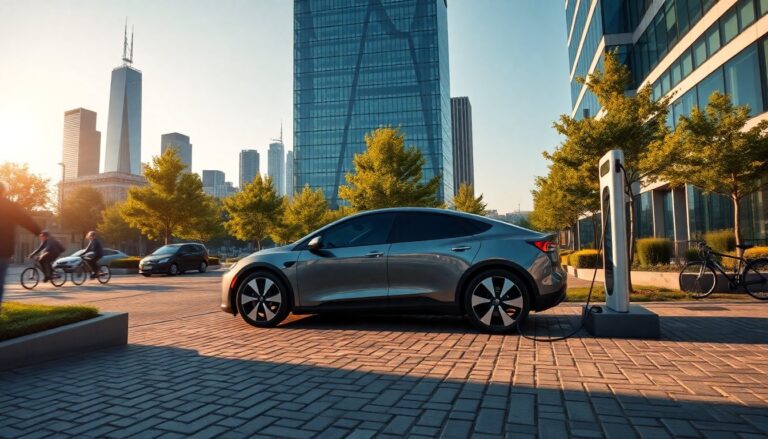Argomenti trattati
The automotive industry has experienced significant changes in recent decades. The transition from the internal combustion engine to the emergence of electric vehicles (EVs) highlights the critical role of technology in reshaping transportation. As we move further into the 21st century, it is vital to examine the major advancements in automotive technology and their substantial impacts on consumers and the environment.
Key advancements in automotive technology
The automotive industry is experiencing a transformative phase with the rise of electric vehicles. These vehicles utilize electric motors instead of conventional gasoline engines, offering benefits such as reduced emissions and enhanced efficiency. The global emphasis on sustainability has catalyzed a significant increase in EV production, with manufacturers like Tesla at the forefront of this movement. Additionally, innovations in battery technology are addressing earlier concerns regarding vehicle range and charging times, making electric vehicles more appealing to consumers.
Battery technology and its implications
The evolution of battery technology plays a critical role in the advancement of electric vehicles (EVs). Innovations like lithium-ion batteries have greatly enhanced energy density, enabling EVs to cover longer distances on a single charge. Furthermore, the establishment of fast-charging infrastructure is essential for improving user experience and reducing range anxiety among prospective EV buyers. Ongoing research into solid-state batteries holds significant potential, with the prospect of faster charging times and extended battery lifespans.
The rise of autonomous vehicles
The development of autonomous vehicles marks a significant milestone in automotive technology. These vehicles utilize a blend of machine learning, computer vision, and sensors to navigate and operate independently, without human intervention. Leading companies such as Waymo and Uber are pioneering advancements in self-driving technology. Their objective is to improve safety and efficiency on the roads, aiming to reduce accidents and enhance traffic flow.
Safety and regulatory challenges
The emergence of self-driving cars presents significant safety and regulatory challenges. Ensuring the reliability of autonomous systems is paramount. Any malfunction could lead to serious accidents. Additionally, regulatory bodies must develop comprehensive frameworks to oversee the testing and deployment of these vehicles. As this technology progresses, effective collaboration between manufacturers and regulators will be crucial to address these challenges and ensure safe integration into our roadways.
Connectivity and the future of transportation
The integration of connectivity into automotive technology represents a significant shift in the transportation landscape. Connected vehicles leverage the Internet of Things (IoT) to facilitate communication among themselves and with surrounding infrastructure. This innovation allows for features such as real-time traffic updates, automated emergency braking, and advanced navigation systems. As vehicles become increasingly interconnected, the potential to enhance traffic flow and mitigate congestion becomes more attainable.
Smart cities and transportation networks
The emergence of smart cities aligns with the advent of connected vehicles. These urban spaces utilize technology to enhance resource efficiency and elevate residents’ quality of life. Integrating connected vehicles into smart transportation networks can significantly improve public transit systems, lower emissions, and boost road safety. As cities globally invest in advanced infrastructure, the automotive sector must adjust to these evolving dynamics to maintain its relevance in the market.
Environmental considerations and the future
As the automotive industry evolves, it faces increasing pressure to address environmental concerns. The emergence of sustainable practices and the transition to electric and hybrid vehicles demonstrate a heightened awareness of the sector’s ecological footprint. Manufacturers are not only aiming to reduce emissions but are also prioritizing sustainable production methods and materials.
Moreover, the establishment of recycling programs for batteries and automotive parts is gaining significance. By emphasizing sustainability, the industry can play a crucial role in fostering a healthier planet while catering to the preferences of eco-conscious consumers.
The evolution of automotive technology is reshaping the industry in significant ways. The rise of electric and autonomous vehicles is transforming how we think about transportation. Additionally, the integration of connectivity and sustainability measures enhances the overall experience for users.
As these technologies continue to develop, collaboration among stakeholders is essential. Manufacturers, regulators, and consumers must work together to fully harness the potential of these innovations. This cooperation is vital for creating a safer and more sustainable mobility landscape.

